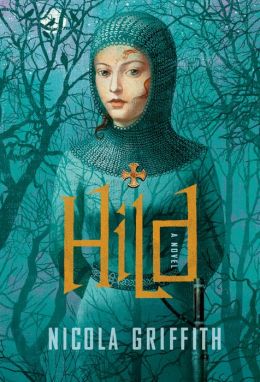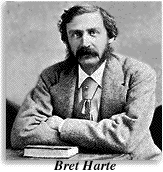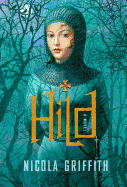 With the historical epic Hild, Nicola Griffith creates an alternate reality, strange in its particulars yet utterly recognizable as human. Through the preternaturally observant eyes of Hild--a child when the novel begins--Griffith unfurls a vivid tapestry of nature and craft, belief and myth. Inspired by the life of St. Hilda of Whitby, Hild is an immersive experience, its exquisite language serving as a portal to a distant time and place.
With the historical epic Hild, Nicola Griffith creates an alternate reality, strange in its particulars yet utterly recognizable as human. Through the preternaturally observant eyes of Hild--a child when the novel begins--Griffith unfurls a vivid tapestry of nature and craft, belief and myth. Inspired by the life of St. Hilda of Whitby, Hild is an immersive experience, its exquisite language serving as a portal to a distant time and place.
In the seventh-century Northumbrian court of King Edwin, his niece Hild rises to prominence as a seer through the machinations of her mother, Breguswith. In truth, the girl's "prophecy" is shaped by her extraordinary intelligence and powers of observation, which enable her to see patterns in the intrigues and political machinations of those around her. But danger is constant, and Hild must continuously prove her usefulness to King Edwin--or die.
Complicating matters is Hild's knowledge that Cian, her foster brother, is in fact her half-brother--a lineage that, if revealed, could make him appear a threat to the throne. Hild's challenges increase in complexity as her strong sense of duty, combined with love and compassion, repeatedly come into conflict with the demands of survival in the court of the king. Seeing everything, Hild is perpetually a guardian of secret knowledge--others' secrets, and her own.
Griffith brings a remarkable sensuousness to the setting, beautifully evoking the lush physicality of the joys, hardships and sheer work involved in a life so intertwined with the vagaries of the natural world. The language is strung with unexpected gemlike turns of phrase: women ride in a wagon "like coddled eggs," their boots "the colour of owl breasts."
As a woman of power and influence, Hild stands out in her time, yet the women in this world possess strength and complexity. While everyone orbits the king, Breguswith operates so cannily from the shadows that her effects on the court may be the most profound of all. Perhaps most intriguing about the portrayal of women in Hild is the lifelong bond between pairs of women, called gemæcce, who spin and card together from childhood until death, through marriage, sickness and childbearing. The relationship between gemæcce is as significant in its own way as marriage.
Though it is the richness of historical detail that may be most overtly noticeable, Hild is above all a story of love and friendship--and how the preservation of those things demands sacrifice. --Ilana Teitelbaum
Shelf Talker: A richly detailed historical epic inspired by the life of St. Hilda of Whitby, who in the seventh century was influential in spreading Christianity in Britain.
 Let's Play Books, a children's bookstore, is scheduled to open before the holiday season in Emmaus, Pa. A soft opening is planned for no later than December 5, but the "goal date" is Small Business Saturday, November 30, according to the store's "Let's open a store" Facebook events page.
Let's Play Books, a children's bookstore, is scheduled to open before the holiday season in Emmaus, Pa. A soft opening is planned for no later than December 5, but the "goal date" is Small Business Saturday, November 30, according to the store's "Let's open a store" Facebook events page. 









 Larry Kirshbaum isn't officially
Larry Kirshbaum isn't officially 
 A Boston group led by
A Boston group led by  Six months after celebrating its 30th anniversary,
Six months after celebrating its 30th anniversary,  Vicki DeArmon (c.) of
Vicki DeArmon (c.) of  Congratulations to
Congratulations to 
 A store spokesperson in Nanjing said posters in the store are part of an effort to get people interested in reading and called the approach "positive and not pornographic."
A store spokesperson in Nanjing said posters in the store are part of an effort to get people interested in reading and called the approach "positive and not pornographic." Shake
Shake NPR yesterday reported on Women and Children First
NPR yesterday reported on Women and Children First
 When Stona Fitch published his novel Give + Take through the Concord Free Press in 2008, he didn't take the usual approach to getting it into readers' hands. Operating on what he calls a "generosity-based" model, Fitch gave copies of the book to anyone who asked for one, charging them nothing (and even covering the postage). All he asked in return was that recipients donate the money they would've spent to a charity of their choice, then, once they were done reading the novel, pass the book along to another reader.
When Stona Fitch published his novel Give + Take through the Concord Free Press in 2008, he didn't take the usual approach to getting it into readers' hands. Operating on what he calls a "generosity-based" model, Fitch gave copies of the book to anyone who asked for one, charging them nothing (and even covering the postage). All he asked in return was that recipients donate the money they would've spent to a charity of their choice, then, once they were done reading the novel, pass the book along to another reader.
 With the historical epic Hild, Nicola Griffith creates an alternate reality, strange in its particulars yet utterly recognizable as human. Through the preternaturally observant eyes of Hild--a child when the novel begins--Griffith unfurls a vivid tapestry of nature and craft, belief and myth. Inspired by the life of St. Hilda of Whitby, Hild is an immersive experience, its exquisite language serving as a portal to a distant time and place.
With the historical epic Hild, Nicola Griffith creates an alternate reality, strange in its particulars yet utterly recognizable as human. Through the preternaturally observant eyes of Hild--a child when the novel begins--Griffith unfurls a vivid tapestry of nature and craft, belief and myth. Inspired by the life of St. Hilda of Whitby, Hild is an immersive experience, its exquisite language serving as a portal to a distant time and place.